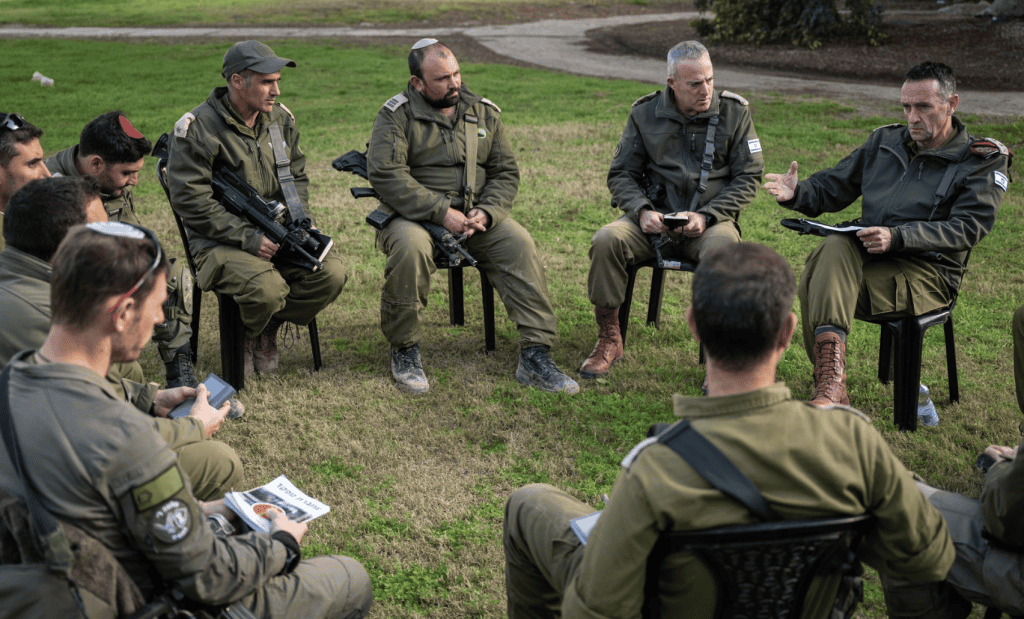
Hezbollah in Lebanon continued to carry out attacks against Israel, even as Israel has sought a diplomatic solution via mediation from countries including the US and France. The IDF said on Tuesday that a rocket launched from Lebanon targeted the community of Arab al-Aramshe. The IDF said it responded with fighter jets attacking a Hezbollah “command center.” There were other strikes by Israel in Lebanon during the day. Later in the evening of January 30, more sirens were heard in Arab al-Aramshe, indicating a new threat. This community is made up of members of the Arab beduin minority who live in northern Israel. Most of the residents who live along Israel’s northern border have been evacuated.
Israel Defense Minister Yoav Gallant went to Haifa on January 30 and warned about the threats faced by northern Israel. “The stage will come when our patience will run out, and a forceful action to enforce peace on the northern border will also affect the Haifa metropolis,” he said. On January 29, Israel’s Reshet Bet radio interviewed a security officer in the community of Margaliot who described how a Hezbollah journalist had threatened him personally by posting his photo online with a gunsight around the image. In addition, the pro-regime Iranian media outlet Fars News highlighted Hezbollah attacks on northern Israel, noting that Hezbollah was using heavier “Barkan” missiles.
Amidst threats from the north, Israel Chief of Staff Herzi HaLevi visited IDF reservists posted near the Gaza border to brief them on IDF operations. He was visiting the unit after 21 Israeli soldiers were killed last week in Gaza following the explosion of a building near which the soldiers were carrying out an operation. The Chief of Staff met with the commanders of Israel’s Gaza Division and the commander of the Southern Gaza brigade. Before the Hamas attack on October 7, these units would have been stationed on Israel’s border with Gaza.
HaLevi addressed Israeli soldiers in the wake of a successful raid in Jenin in which three terrorists were neutralized in a hospital. “This morning soldiers of the Yamam Unit entered into a hospital in Jenin, inside which a terrorist cell was planning to carry out a serious attack and to kill Israeli civilians,” HaLevi said. He went on to note that Israel is determined to confront terror in Gaza, the West Bank, and Lebanon, echoing statements from commanding officers and many in the defense establishment. Israel will continue the war in Gaza and efforts therein to uproot Hamas terrorist infrastructure. “This is what will give us the ability to go to a long, complex war, and at the end of the road to win a victory that is very important and will also be very clear,” HaLevi said.
The IDF also released details on January 30 of its “Atlantis” program that uses water to erode and destroy Hamas tunnels in Gaza. The process of finding and destroying hundreds of miles of tunnels with thousands of potential entrances has proven to be incredibly complex and taken specialized forces. It has also taken time. The IDF has been working with the Israeli Ministry of Defense to develop tools and methods to “channel large volumes of water into Hamas’ terror tunnels in the Gaza Strip. This is part of a range of tools deployed by the IDF to neutralize the threat of Hamas’ subterranean network of tunnels,” the IDF said. The IDF said the flooding of the tunnels is done in such a way that does not damage groundwater, thus requiring analysis of local soil and water systems.
The tunnel operations occur as another Israeli unit, the Kiryati brigade, was withdrawn from Gaza after months of operations against Hamas.







